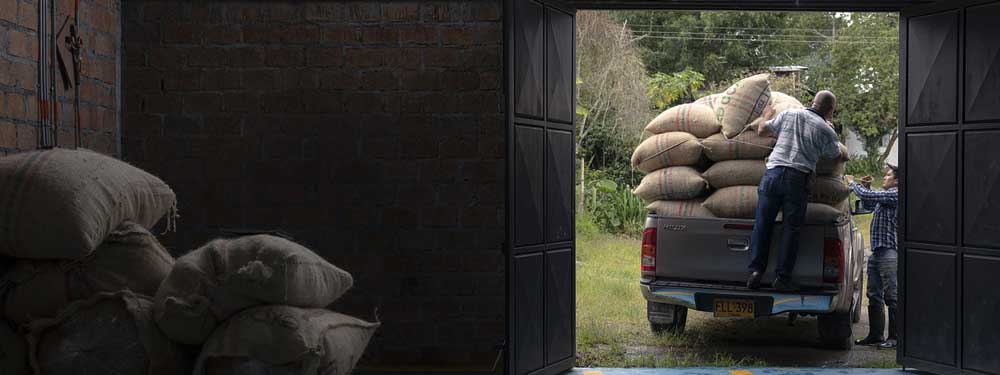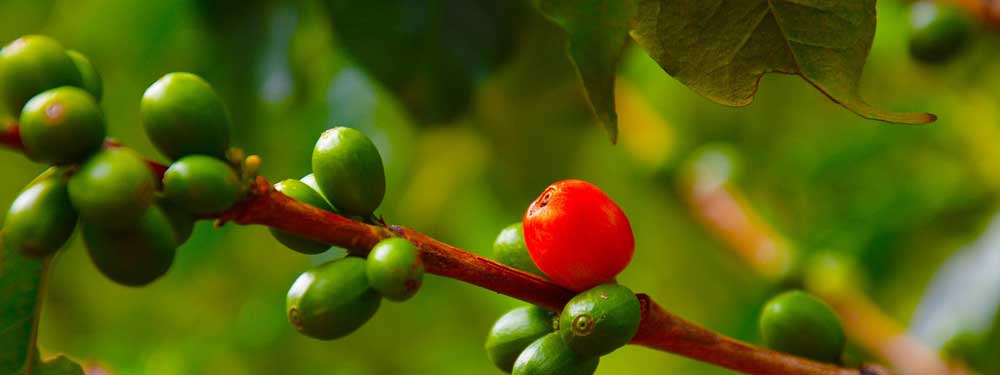A Global Brew with a Global Impact
Coffee is a daily ritual that connects billions of people every morning. Coffee is a global industry: more than two billion cups of coffee are consumed each day, employing millions of farmers, exporters, and small businesses in the process. The widespread love of coffee means that the long-term supply and quality of coffee are under threat from deforestation, climate change, and unsustainable agricultural practices, all of which endanger the eco-systems in which coffee thrives. Now more than ever, sustainable coffee farming is essential.
Sustainable coffee farming is a practice that protects the environment, secures a good livelihood for the farmer, and secures the quality and availability of coffee for future generations. Every cup of coffee that is farmed sustainably is a step towards a better world, one cup at a time.
Environmental Sustainability: Protecting the Ecosystems Behind the Beans
Coffee farms are often located in sensitive ecosystems that are susceptible to deforestation, erosion, and climate change. Some conventional coffee farming practices include deforesting land to create larger plantations, using chemical fertilizers, and over-extracting water from the environment. These practices can have negative impacts on the soil quality, biodiversity, and carbon footprint of the coffee farms.
Sustainable coffee farms, on the other hand, adopt practices that minimize the impact on the environment. Practices such as shade-grown coffee, agroforestry, and organic production can help to conserve biodiversity, water, and reduce chemical runoff. Sustainable coffee farms may also plant native trees, maintain forest cover, and use composting or natural pest control methods to improve the soil quality and support pollinators.
Protecting the environment is not only beneficial for the coffee farms but also for the planet as a whole. By sourcing coffee from sustainable farms, consumers can support environmental conservation with every cup of coffee they drink.

Economic Fairness: Supporting Farmers and Communities
Sustainability isn’t just about the environment; it’s also about people. The majority of coffee in the world is produced by smallholder farmers who can face low wages, unstable markets, and limited access to resources. Without fair compensation and support, these farmers cannot invest in better equipment, education, or more sustainable practices.
Sustainably certified coffee programs like Fair Trade, Rainforest Alliance, and UTZ have minimum price guarantees and provide premiums that go directly to the farming communities. This ensures that farmers earn a livable wage and can invest in their operations, send their children to school, and support their communities.
In addition, sustainability efforts often include training programs to help farmers adapt to climate change, improve crop yields, and minimize environmental impact. A sustainable approach to coffee production creates a more equitable coffee economy, where farmers can thrive as valued partners in the global coffee supply chain.
Climate Change Resilience: Adapting for a Changing Future
Coffee farming is also one of the most vulnerable industries when it comes to climate change. Increasing temperatures, erratic rainfall patterns, and the proliferation of pests and diseases, such as coffee leaf rust, have made it increasingly difficult to produce quality beans in traditional coffee-growing regions. If urgent action is not taken, scientists estimate that up to 50% of land currently used for coffee cultivation will become unsuitable for growing coffee by 2050.
Sustainable farming practices can help coffee farmers to adapt to changing climate conditions. Practices that focus on building soil health, conserving water, diversifying crops and implementing climate-resilient coffee plant varieties can make coffee farms more resilient in the face of unpredictable weather patterns.
Research and innovation are also key. Many sustainability initiatives are also investing in research and development, including breeding drought-resistant coffee plant varieties, developing precision irrigation techniques, and creating early warning systems for pests and diseases. With research and innovation, coffee farming can become more adaptive and future-proof—ensuring a sustainable supply of quality coffee even in the face of climate change.

Consumer Impact: How Your Choices Make a Difference
One thing that people who drink coffee do not know is the fact that they have immense power to bring about a change in the way the industry works. By choosing a product that is sustainably sourced each time, you are putting your weight behind agricultural practices that care for the environment, the people who work there, and the quality in the long term. Consumer demand for sustainably grown coffee has already led to significant shifts in agriculture, packaging, and marketing standards.
Brands that prioritize sourcing from sustainable farms—retailers, cafes, and catering companies—drive demand for ethically grown beans, which can impact the supply chain and compel larger producers to follow suit. Many commitments made by sustainable sourcing businesses are cross-cutting—like a promise to use compostable cups, energy-efficient coffee makers, and zero waste practices.
Education also plays an important role; when consumers are more aware of the journey their coffee has taken, they are more likely to make mindful choices. Choosing sustainability isn’t just a passing fad; it’s a choice that can create real, measurable change.
Brewing a Better Future—Together
Sustainable coffee farming is a holistic practice that goes beyond the cultivation of coffee plants. It’s about creating resilient ecosystems, empowering local communities, and safeguarding the future of this beloved brew. As climate change and global demand put pressure on coffee production, the need for ethical and environmentally friendly approaches has never been greater.
At every step of the journey from farm to cup, sustainable coffee practices play a critical role. Whether it’s choosing the right beans, roasting responsibly, or engaging with farmers and communities, each decision shapes the world we share. Consumers, businesses, and coffee farmers can all contribute to this positive change.
With every cup, we have the power to support a movement that values quality, fairness, and the health of our planet. Together, we can make a difference and ensure that coffee remains a source of joy for generations to come.
Coffee farming is more than a crop; it’s a commitment to people, planet, and the future of this cherished beverage. By embracing sustainable practices and making conscious choices, we can all be part of a story that’s worth telling—and, of course, worth drinking.
